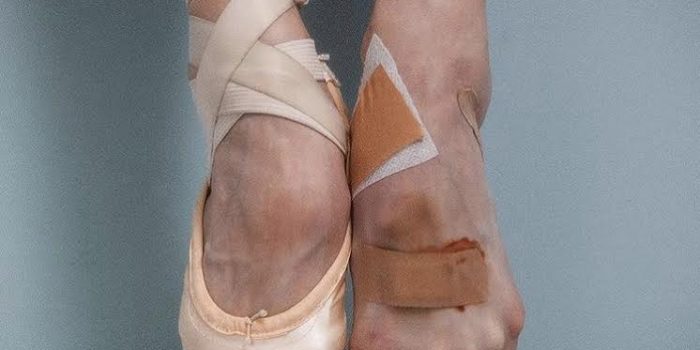Marginalized
Originally published on Salon.com http://tinyurl.com/k9yu6xo
When I was 18 I began working at a local strip club that had four walls and a stage. It was not fancy, but there was no plywood exposed and the sound booth was top notch. Part of the reason I am where I am today is I took too easily to that job back then. Or, rather, it took too easily to me. From the first night I was the top earner in that club. It wasn’t ridiculous money. This wasn’t Vegas or Miami or New York. It was Sacramento, in a warehouse district. My top earnings only netted me $500-$800 per shift. That’s $500-$800 per day for an eighteen-year-old, though. Previously, my take home was about $800 in a month, working full time.
Strip clubs can be shark tanks. They are four tight walls teeming with girls who often had been the hottest in high school and best at getting attention. Now those girls have grown up and the competition is stronger. There is a cash prize. It is the greatest popularity contest of their lives. Not all of the girls fit this mold, of course. Not even most. But enough do. Enough fit it that they will have their troops when it comes time to run out another contestant. Think Mean Girls, with teeth.
At first I was coddled by the other dancers and treated as the new girl. There were encouraging smiles and notes on where to shop, help with names. When the new girl period expired though, it became clear that I wasn’t just sailing on beginner’s luck. All too quickly I’d built up a roster of regulars, a game plan, and a catchy hook. I knew when to ask for the money.
For the next six months I was bullied. My clothes were stolen, my drinks were spit in, my car was keyed. I was laughed at by a troop of fishnet-clad prom queens from the back of the room every time I stepped on stage. They made sure their comments were loud enough to hear across that distance and above the roar of the DJ. I made sure to see that they saw me counting the tallies on the dance sheet. I made sure they saw me smile when I was done. Their hate fueled me.
That was most nights. Other nights, I was scared of walking from my car to the entrance in the dark. I would enter the locker room once to drop my bag off and not again until closing time, eyes on the ground as I walked past a row of them perched on the locker bench, glaring and whispering and smacking their gum. All of the extra time on the floor only earned me more money. All of their time in their huddled in groups only earned them less. The cycle continued.
Sometimes I broke. Sometimes I left because I couldn’t take it and sometimes I crumbled to tears because I was more afraid of letting them see me leave than working through staying. Quitting and letting them win seemed to be out of the question. On the worst night, nearly every girl on the shift had agreed to bark when I walked by her. It’s stupid, of course—a grown woman barking as a power play. But I was eighteen and it worked. I ran out the back door hysterically crying after four slow hours in to a Tuesday night shift. A manager followed me out. He talked me down and talked me through it. He laid out the sort of things that one already knows, but it felt good to hear it out loud from a fellow human.
He said, Laugh all the way to the bank.
And then he fired them.
When I was twenty-one, a reporter called me unexpectedly from the periodical issued monthly by Sacramento State University. The story was front page. One of their students had run astray and signed up with a major porn label over the obviously better personal choice of keeping her head down, finishing her undergrad work, and trucking on. I was that student. The comments that followed were nothing short of academic obscenity. One student questioned why such an influential publication would even run an article that might open the minds other impressionable college students to the possibility of following that same rocky course. One said it was surprising I’d even made it that far in school in the first place. A third said I Looked the part (they had, in all fairness, run a photo of me taken from a porn convention) and a fourth very confidently explained that I’d been molested by an uncle. Others promised that I would regret my entire life and my parents would regret my life, too. I didn’t take it personally. It was too easy to fall back on the comfort that, after all, this was only printed in a newspaper run by fellow twenty-one-year-olds in a state school that had a cartoon bug for a logo.
This story ran at a time when one of the questions America was beginning to reassess was whether growing student debt was worth its weight. Starbuck’s baristas were just beginning to tell their stories about having two masters degrees and no better job opportunities. The housing market had flattened and consumer spending along with it. I remember reading the article and cringing, then recollecting and laughing instead. Then I laughed harder when it occurred to me that I was quite literally at that time making my way to the bank.
Somewhere along the way, Laughing all the way to the bank stopped working for me. What began as a short-term job morphed into a career morphed into a life path I identify heavily with. I don’t regret my life. I don’t regret my decision to turn away from the degree I was after and choose this occupation instead. I don’t feel like it has made me something for the worse. Somehow, though, I am constantly finding myself reassuring strangers of this intensely personal feeling.
I am constantly forced to defend myself against delicate predicates, like the accusations that I have been molested by my uncle. I have not been molested by an uncle. Not by a single one of them, if you can believe it. Yet strangers every day tag me with this scarlet letter because they can imagine no other circumstance under which I might choose the life I have chosen. This is not only an insult to me, but it is an insult to all women who have made unconventional personal choices, because the go-to assumption is that a woman who doesn’t fit the mold has very likely been sexually damaged by a man. It is a comfortable way to explain away a disobedient woman. The uncle molestation bit is an even greater insult to the men and women who have actually been molested in their childhoods. It is not a punch line. Yet it is so commonly thrown into the din of background noise I hear in the judgments made that I mostly don’t even hear it. Once, though, I did. I was on a podcast chock full of known and aspiring comedians and I was asked, Where did your uncle touch you? That time I reacted. To this day, I am chastised by the fans and hosts of the show for being a bad sport, for being a princess, for acting holier than thou. The general attitude appears to be one of Who do you think you are, pornstar? All jokes are fair game against a sex worker.
Because the comments are so often and so terribly illogical, I really do shoulder most of them off. There is the added factor of living among fellow porn stars, having working relationships and friendships and romantic relationships with them and now, yes, even families with them. We live on the edge of society, but we live in the center of our bubble. The noise is somewhere out there, where there represents a place hazy and distant—It is a line of picketers whose wall we only need to break through to ascend the stairs to the next convention, it is a self-appointed savior with her docu crew, it is a comedian shoving another tired cliché into his failing bit. We hear the things people say and they are often easy to laugh off because they are extreme and all we have to do is look between one another to see that it is not true. There are sad cases, yes. But they are not limited to the world of porn. We are all just humans each day trying to make it in the world.
I recently had an article published in the “Modern Love” section of the Sunday edition of The New York Times. The response, to my face, was, for the most part, wildly positive. The message was called honest and poignant. I had hoped for such a thing. I had, after all, shared a part of my story that I’d never before shared, as well as my fears and uncertainties. I had shared it with arguably one of the biggest and most thoughtfully critical audiences in the world. The story told of how I’d met and fell in love with the father of my child. The place was my first porn shoot, and he was the first man I had sex with on camera. A stranger commented, This writer has no sense of irony. It stings, but again, I can almost laugh—not on my way to the bank, what with the way writing pays—but I can almost laugh at just how wrong a statement like this is. Does he really believe I can’t see the irony in that? Irony in porn is a low-hanging fruit. Another few strangers commented that The New York Times was ‘pandering’, implying that it is impossible that I could have had a love story worth telling.
This is probably the assumption that kills me most about ‘my story’. People are dying to hear it. They drool over it and ask the sort of questions that will lead them most quickly to the story they have already quietly aligned me with. When my story does not fit their assumption of my story, though, I am shoved back off again as worthless. Any further interaction with me is called ‘pandering’.
I sometimes wonder how deeply the assumption that the adult performer is somehow a lesser person really runs. Will our aggressor be given a lighter sentence in the event of a murder trial? Will the case be taken less seriously in the event of that one of us disappears? Are government employees instructed to give us less service? Are private employees? Does our ballot carry less weight? Our personal freedom? For the past few years we have been disgustingly finger-wagged by far-removed men who believe that they know better than we do about how we should protect our vaginas. Successful politicians have built platforms on the promise to rid their country of us. For decades religious zealots have wrapped themselves in lines around the doors to our conventions, casually telling us that our skin will fall off from the heat of fire that will engulf us because of what we are. Next they smile and add, God Bless You.
It is easy to dismiss it as a mindless din in the background, and then some days it becomes less so.
For me, it became less so last week. It was a boiling over of things, but mostly one thing. I stepped too far outside of my bubble. I stepped back into that same sense of isolation I remember feeling during the bullying I endured at the strip club a decade ago. Last week I began the first level course of a comedy troupe. There are a number of reasons why, but you don’t need any of them. The man teaching the class opened with a story about a grocery store he hated shopping at. He said, You know it’s bad, because you walk in and you just feel like it’s a bunch of ex-pornstars shopping there. The next day he taught us techniques of status and leading with various parts of the body to convey who you are in the world. Finally, he cut the exercise off.
He said, Enough, one of you is starting to look like a pornstar.
In a sign off on the last day of the first week, he looked us all over and said, Don’t worry, if you fail at this, there’s always porn.
And the fact is, what he’s saying is funny. It is. The lines are delivered seamlessly and the whole class sort of giggles as they do with all of his jokes, funny or not. I see the humor. I see the irony. There is always porn. No one in my industry is claiming to engage in rocket science. There is also always McDonalds. Or college. Or going into business for oneself. There is always the option of falling back on Plan B.
I spent that week trying to figure out why I was cringing so heavily at this teacher’s comments. They were nothing I hadn’t heard before. As the week went on, I drew more and more into myself. I have regressed. I am less good at improv comedy today than when I started. Why? Because of this: I mostly have the ability meld with conventional society well and anonymously, but there is always the chance that I am recognizable. Not to the large majority of the population, but to enough of it that, wherever I go, the chance remains that someone will know who I am. Not that I mind being recognized. Being recognized is slightly flattering, if anything. But not this late in the game. Not now, in this particular setting. What I am scared of now is the potential moment one of the students in the class recognizes who I am, and all of the moments that follow as the teacher continues his monologues peppered with commentary that implies that being what I am is possibly the worst thing on earth. All of the comments that say, Well at least you’re not that. They are, Stop, you’re making me uncomfortable, I feel like you’re that. What scares me is the shared embarrassment between that student and myself as the teacher drones on. The sideways glances to check my reaction every time the nerve is struck. The pitying conversation the student may have privately after class with the teacher, just to make him aware.
You know, she really is that.
I’m scared of the change in the way the teacher behaves towards me if that happens. The apology or the tougher time he gives me or the diverted jokes. Because now the embarrassment is between three of us, and he knows that I really know what he thinks of me, no matter how much is said in the backtracking, or how little. I’m scared of the whisperings as it spreads through the class and they start to all take note of how he treats me.
Now any kind interaction he has with me from here out is pandering.
It becomes possible that The New York Times was only pandering.
That the class in their silence is pandering. In fact, they might even be pandering now.
It becomes possible that anything I’ve ever believed I’ve done well was really only awarded with a participation ribbon—not bad, for a pornstar! Anyone who has ever played nice has merely been biting his tongue.
As we become more socially conscious, more and more groups of people who served as the punching bag to the comedians and the self-righteous are being reabsorbed into everyday society in the name of being politically correct. Still left are a few choice groups, one of which is the sex worker. Still allowable are the subversive comments that imply that a female is that. Still allowable are the clichéd assumptions that explain how she came to be that. The reason it becomes politically incorrect to make ignorant comments about groups of people is quite simple: It is that the comments are damaging.
The reason Laughing all the way to the bank doesn’t work anymore is because it was only a Band-Aid for the surface scratches in the first place. I am no longer an eighteen-year-old who found a relative gold mine in a strip club. In place of that, I am a decade older with clear thoughts and goals and values related to who I am. One of those things is a pornstar. Perhaps the only reason Laughing all the way to the bank worked back then was that I felt I was dealing with an isolated foe, one whose very problem with me lay with the trips I was making to the bank—a foe whose reaction to a threat was to steal my clothes and bark (It is proving too difficult now not to point out how ineffective it actually is to steal a stripper’s clothes in a strip club—but people claim I don’t see irony). This behavior never spread or became a part of the undertones of a culture. It didn’t aim at my center. It was not a reaction that influenced other reactions and hatefully targeted an ever-broadening group of people in an open way. When I went home, it stopped. It was targeted bullying, plain and simple. Looking a woman in the eyes and accusing her of being the victim of forced incest as a child, for an audience, no less, is much darker. It is this sort of violence of speech that leads to the depersonalization of persons. It is the sort of attitude that leads strangers online to make sexual comments about my infant daughter. And how quickly it went there. My daughter was not four months old when I saw the first ones plainly spoken in the comments section of a mainstream website. Comments that sexualize my infant stem from the assumption that I am less of a human than the speaker is, and so therefore is my child. These are people who push me to the margins of society based on a characteristic they have decided places me beneath them. They have decided that characteristic is funny. It extends that the things that happen at the expense of the people who harbor that characteristic are okay. That these people’s sense of worth is expendable. And perhaps the more insidious thing is when the marginalized group begins to believe it themselves—when they lose their safety nets, their versions of Laughing all the way to the bank or their social bubbles. Because that is when they begin to agree with their bullies. That is when they begin to believe about themselves the things that their aggressors had always accused them were there.
Weeks like this past one leave me wishing I were back in the shark tank—when I find myself not performing to the best of my ability because I’m afraid of being judged, when I read comments that dismiss my personhood, my fiancés personhood, my best friend’s right to exist, my mother’s right to be proud of my accomplishments, when others feel that my humanity has faded so much as to give them room to openly sexualize my infant—a shark tank is the first place I fantasize I can run to. A tank is a controlled environment. It is a place with a hierarchy topped by a person who holds the power to finally stand up and say, Ok, get out of here. That’s enough.
And then when the fantasy is over, I am left with myself. I realize in that moment that the first person who will have to say it, in my case, is me.




